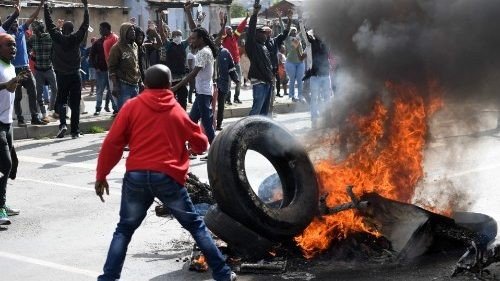By: Isaac Christopher Lubogo
There is an irony in our midst — an irony so bitter it should make the stones cry out. In the streets of South Africa today, we see our brothers and sisters chasing away fellow Africans — Zimbabweans, Mozambicans, Congolese, Nigerians — as if they are enemies. They burn their shops, block their streets, and hound them out of communities.
But have they forgotten? Have they forgotten the years when their own land was a prison? When apartheid’s chains cut deep into their dignity? Who stood with them then?
It was Zambia, that gave the ANC a home in Lusaka.
It was Tanzania, that trained Umkhonto we Sizwe fighters in Dar es Salaam.
It was Mozambique, Angola, Zimbabwe, Botswana — that risked bombardment from Pretoria’s war machine to shelter the freedom struggle.
It was Africa — poor, hungry, and struggling itself — that still gave her resources, her soil, and her sons to the cause of South African liberation.
And let us not forget — many of our fathers and mothers died fighting in a war that was not theirs, yet they claimed it because it was African.
Today, the children of the liberated chase away the children of the liberators. What a betrayal. What a shame.
Yes, I hear the argument — “times are hard, unemployment is high, the poor are suffering.” But hardship does not give you the right to forget history. Poverty can explain anger, but it cannot excuse ingratitude.
When you attack a Malawian migrant in Johannesburg, you are not just attacking a person — you are attacking the very idea of Pan-Africanism. You are telling the world that African unity is a lie, that our solidarity was only a convenience, that freedom was a selfish inheritance.
Let me speak plain: Pan-Africanism is not just history — it is our survival strategy. The world still undervalues our resources, underpays our labor, and underestimates our power. We can only change that together.
And if you break the bridge to your neighbors now, don’t expect them to build it back when you are drowning.
So I say to my South African brothers and sisters:
Remember Lusaka. Remember Dar es Salaam. Remember Maputo. Remember that Africa carried you when you could not walk.
And to my fellow Africans beyond South Africa:
We must confront this with truth, but also with a vision that heals. Let us not answer hate with hate — but neither should we remain silent.
Because silence in the face of betrayal is complicity. And complicity is the death of unity.
Africa, we are one — or we are nothing.








